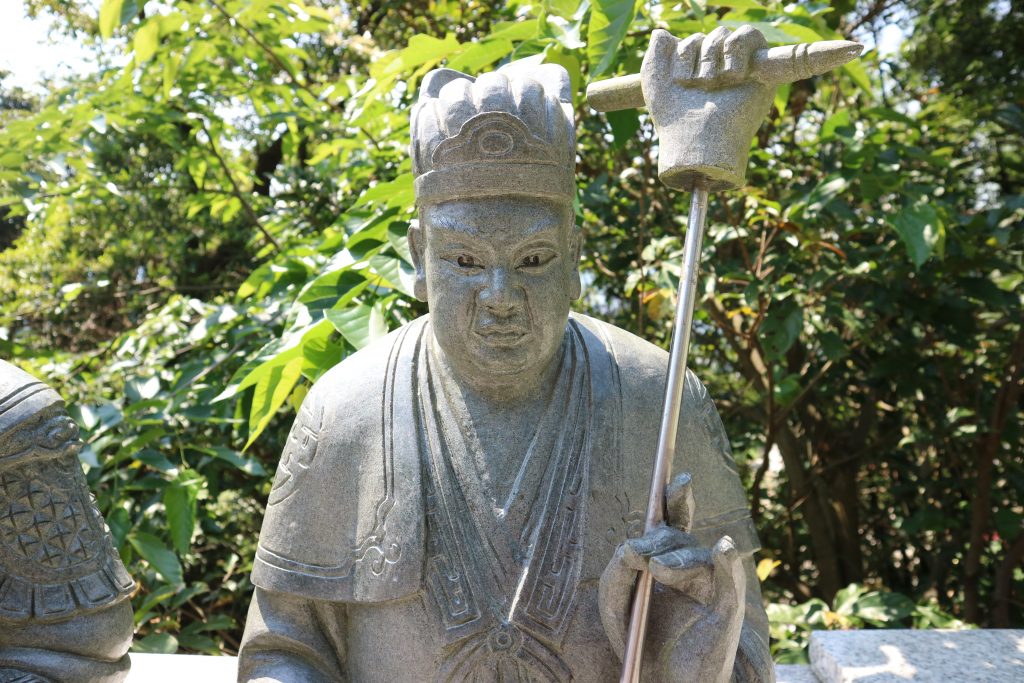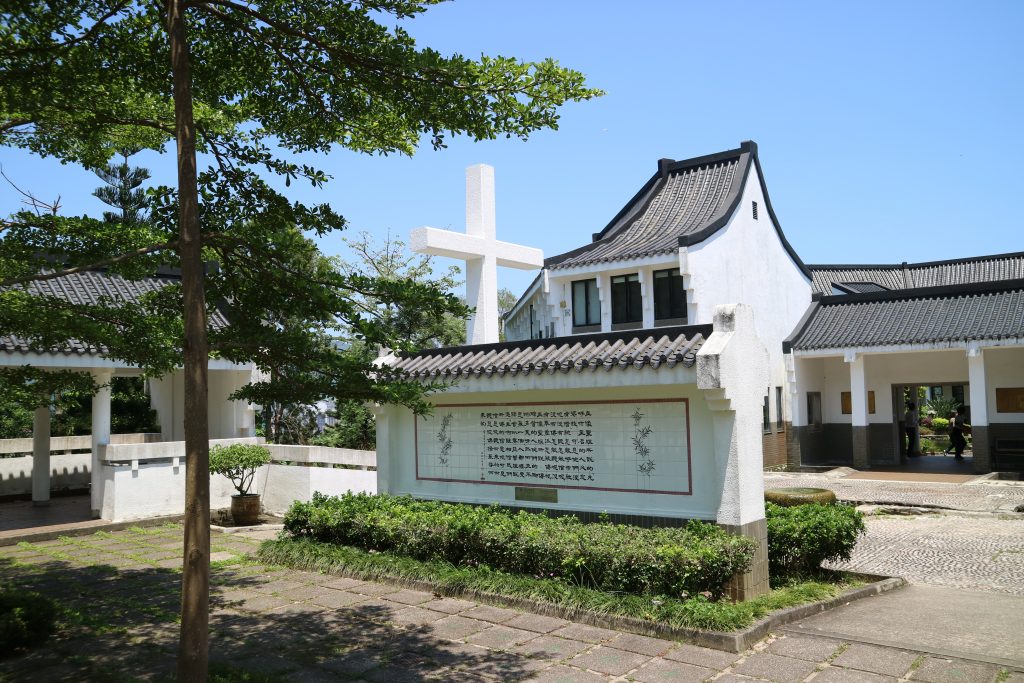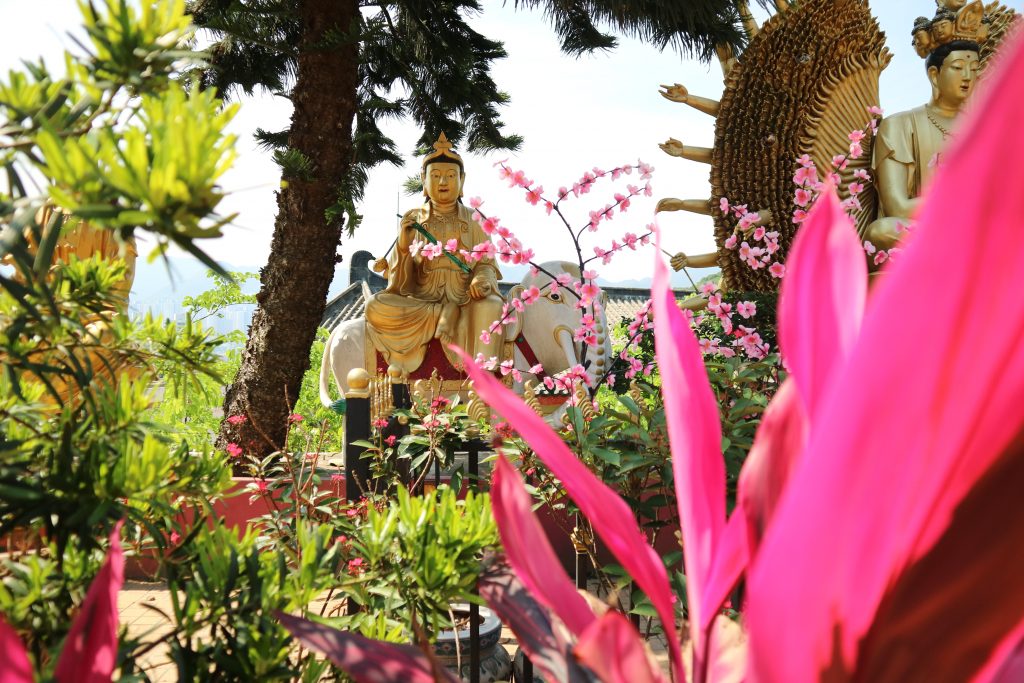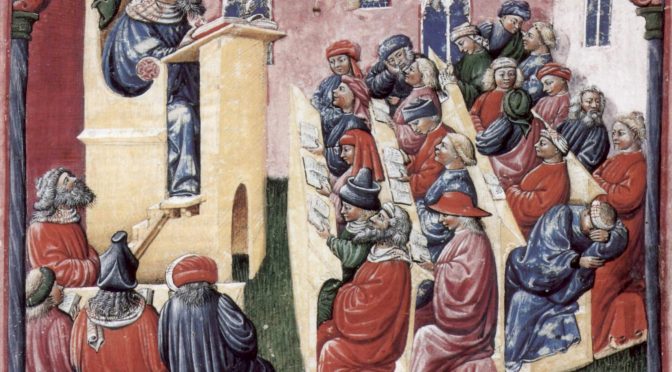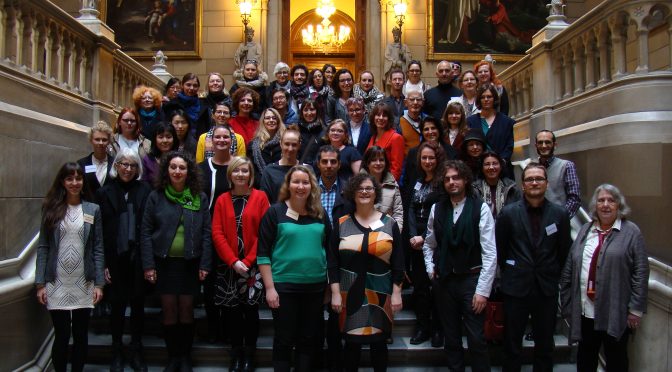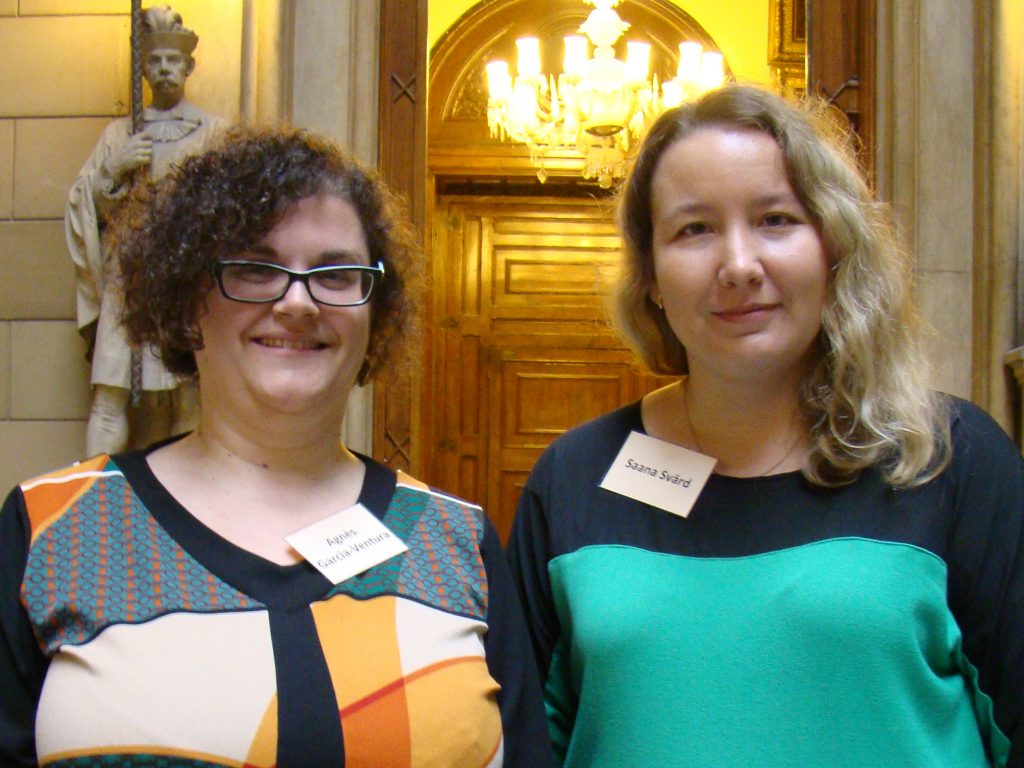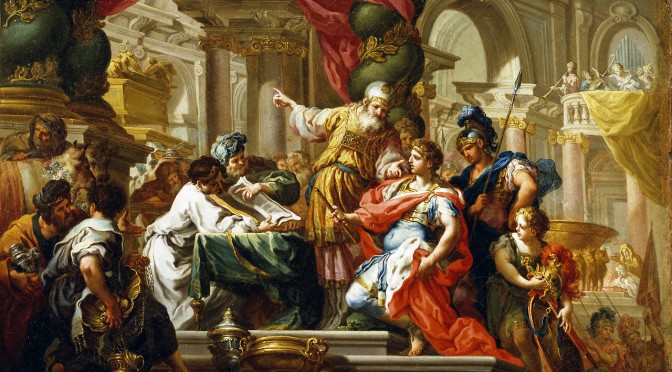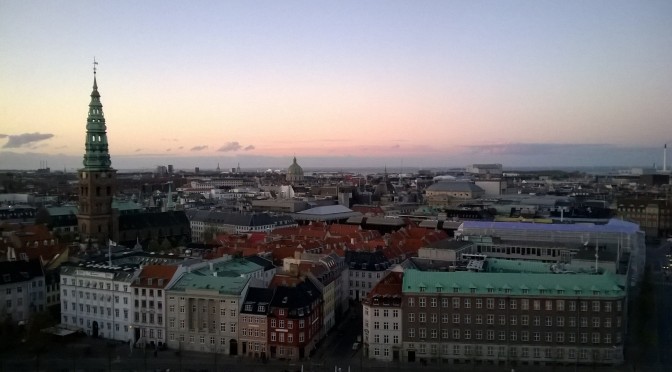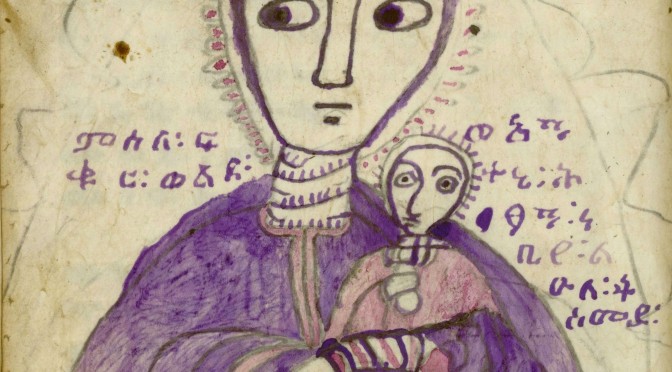by Ville Mäkipelto
Textual scholars often work with small textual variants and single incidents of change. A detailed analysis of the evidence is important; however, there is an increasing need to understand the broader processes of textual change in the context of ancient Judaism. Could the evolutionary theory, systems approach, or Star Wars saga illuminate the textual history of the Hebrew Bible?

At the end of May, from 26th to 28th, team 3 gathered in Hong Kong with the desire to sketch a broader picture of change in the textual and editorial history of the Hebrew Bible by applying new analogues and theoretical frameworks. The workshop was hosted by Francis Borchardt in the Lutheran Theological Seminary. In addition to Team 3 members and affiliates, we had the delight of hosting three brilliant guests: Sara J. Milstein, Assistant Professor of Hebrew Bible and Ancient Near Eastern Studies at the University of British Columbia; Ron Hendel, Professor of Hebrew Bible and Jewish Studies at the University of California Berkeley; and Holger Strutwolf, director of the Institute for New Testament Textual research in Münster.
The participants of the workshop were asked to prepare a paper in which they seek to explain the broader phenomena of textual transmission in the ancient world. We were encouraged to go beyond conventional models of textual change and find new ways of understanding the phenomenon from other fields and processes of change. Unconventional and original ideas were encouraged, and traditional ways of thinking were discouraged. The papers were circulated beforehand; thus, most of the time at the workshop was used for discussing and evaluating the new insights together. This proved out to be a constructive and fruitful way of working.
The guest speakers of the workshop brought important perspectives to the discussions. In her paper, Sara J. Milstein applied insights from cladistics—a tool for classification and categorization of species in biology—into textual studies. Her paper demonstrated that cladistics can serve as a helpful model for understanding the common ancestries of biblical and other ancient Near Eastern texts. With the tools of cladistics, she discovered new traits from the transmission of the so-called flood myth. Continuing in a similar vein, Ron Hendel illustrated that the field of textual studies can benefit from the tools used in evolutionary biology to map “communities of descent”. He noted the similarities of building stemmas in both fields, illustrating his point by comparing stemmas such as the vertebrate cladogram and the textual transmission of Exodus. Responding to recent nominalist and postmodern critics, Hendel insisted that—much like studying the evolution of various life forms on earth—studying the historical relationships of various texts within their larger communities of descent constitutes an important part of textual research. The third guest of the workshop, Holger Strutwolf, provided insights from New Testament textual criticism by exploring the transmission of the so-called “western text” of Acts. Drawing from exhaustive statistical and qualitative analysis, Strutwolf illuminated the creative changes observable in this “living text”. In the discussion, many parallels were found between these processes of transmission and the transmission of some traditions of the Hebrew scriptures (e.g. the Samaritan Pentateuch).
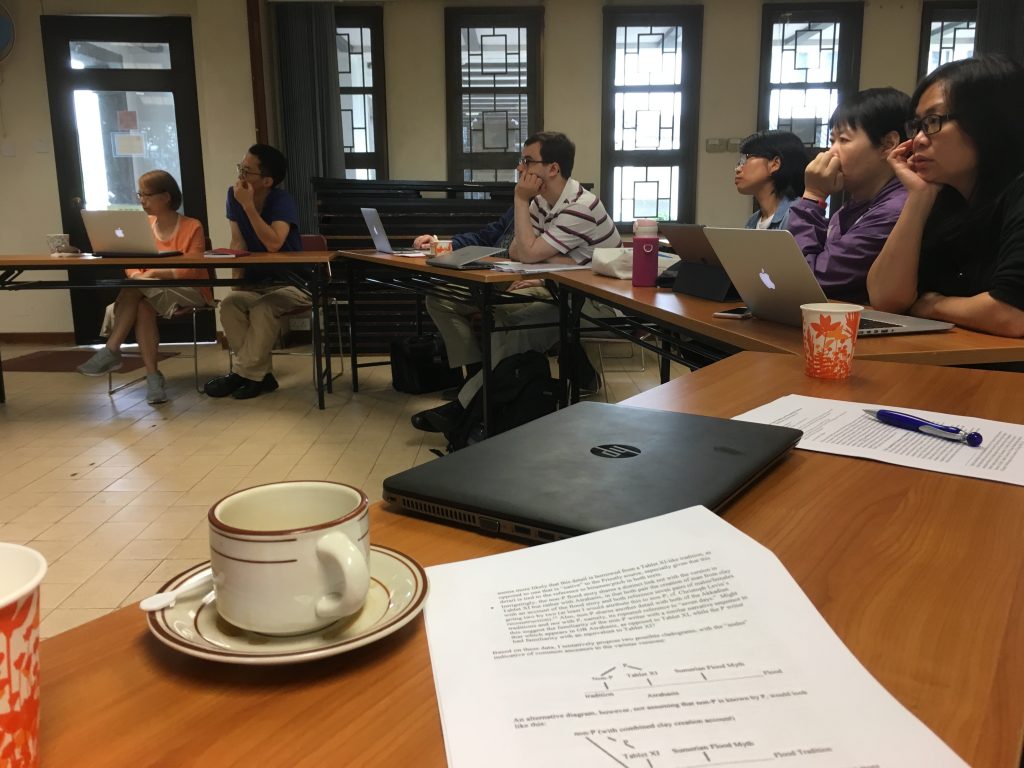
The papers from Team 3 researchers constituted a diverse collection of insights into textual changes in Hebrew scriptures. Mika Pajunen applied perspectives from hurricane formation and river deltas to the transmission of traditions in Second Temple Judaism. Ville Mäkipelto modeled the processes of textual transmission as a complex adaptive system—a recent theoretical framework within the interdisciplinary field of system studies. Reinhard Müller formulated theses related to the nature of editorial developments in the Hebrew Bible and compared these editorial processes to the growth of an unattended forest. Christoph Levin addressed the dilemma of changeability and sacredness of Hebrew Bible texts by elaborating on the editorial process of Fortschreibung. Tuukka Kauhanen offered more precise probability concepts for decision making in textual studies with insights from philosophical probability theories—especially the Bayesian framework. Timo Tekoniemi illustrated convincingly that there are several parallel phenomena in the editing of the Star Wars saga and the editorial processes of the Hebrew Bible. Juha Pakkala presented a classification of the diverse editorial processes visible in the documented evidence of editing. Finally, Francis Borchardt explored ancient models of publication as found in a plethora of texts from the Second Temple Period and discussed their implications for understanding textual change.
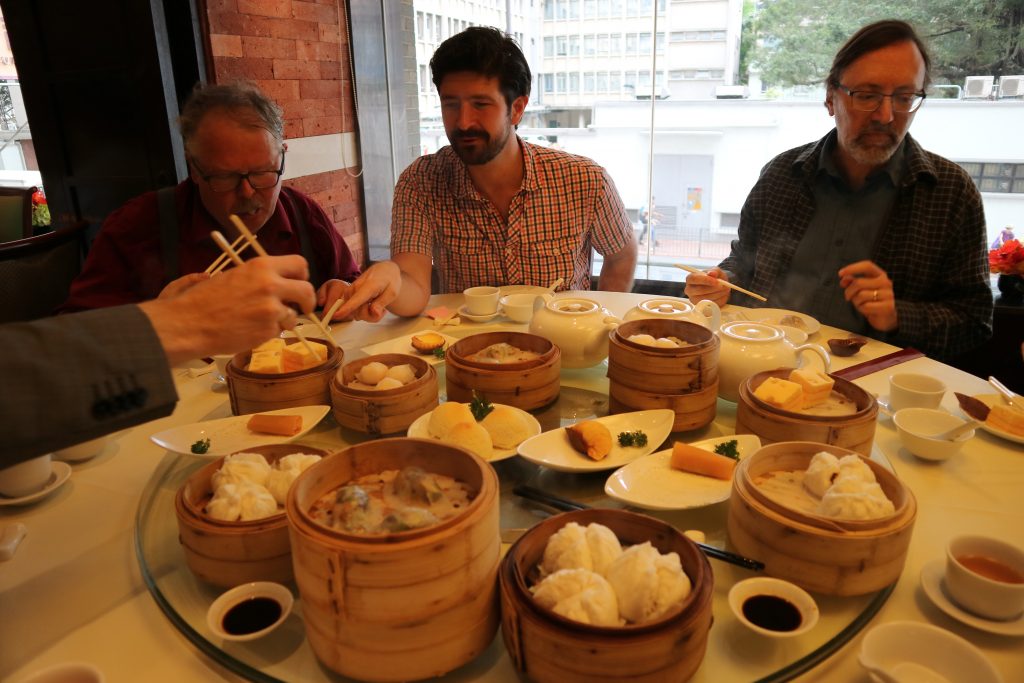
Hong Kong turned out to be a key player in the success of the workshop. The location of the Lutheran Theological Seminary in the middle of a beautiful subtropical forest provided an experiential framework for the title of the workshop. The timetable allowed for some short excursions to places such as the Victoria Peak, Ten Thousand Buddhas Monastery, and Che Kung Temple. The participants were especially grateful for the rich food culture of Hong Kong consisting of, for example, delicious Michelin-star awarded dim sum, varieties of roasted meat, traditional Chinese lunch, and unique street food.
The insights gained from the workshop will hopefully affect the way we do research in the future. It is clear that new interdisciplinary insights and collaboration are needed to better understand the broader phenomena of textual change in the Hebrew Bible. There will be no single collected volume from the workshop, but some of the papers and models will eventually find their way into various publications.
